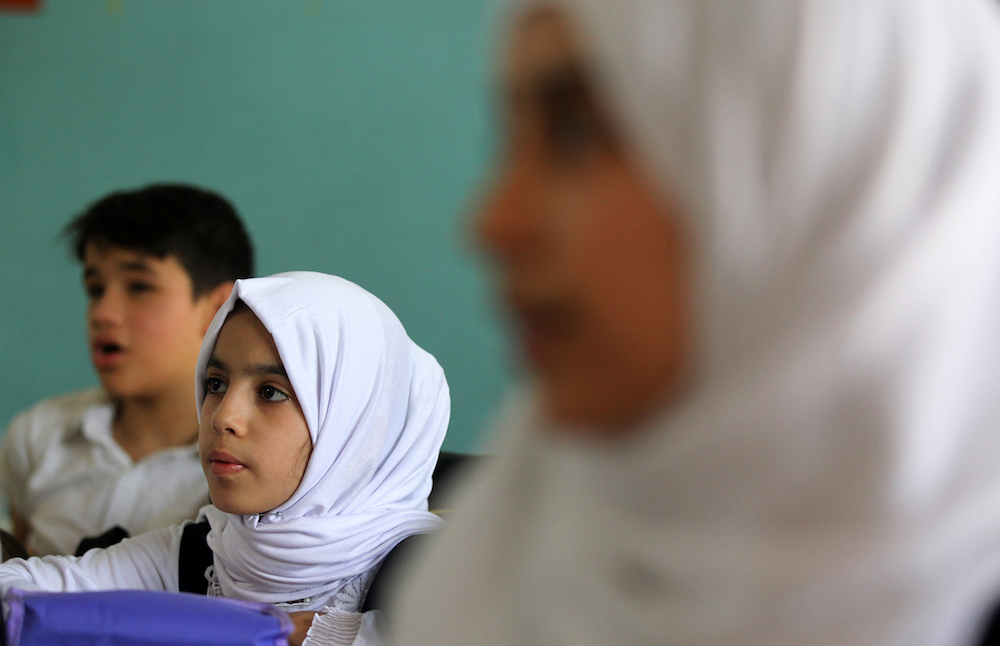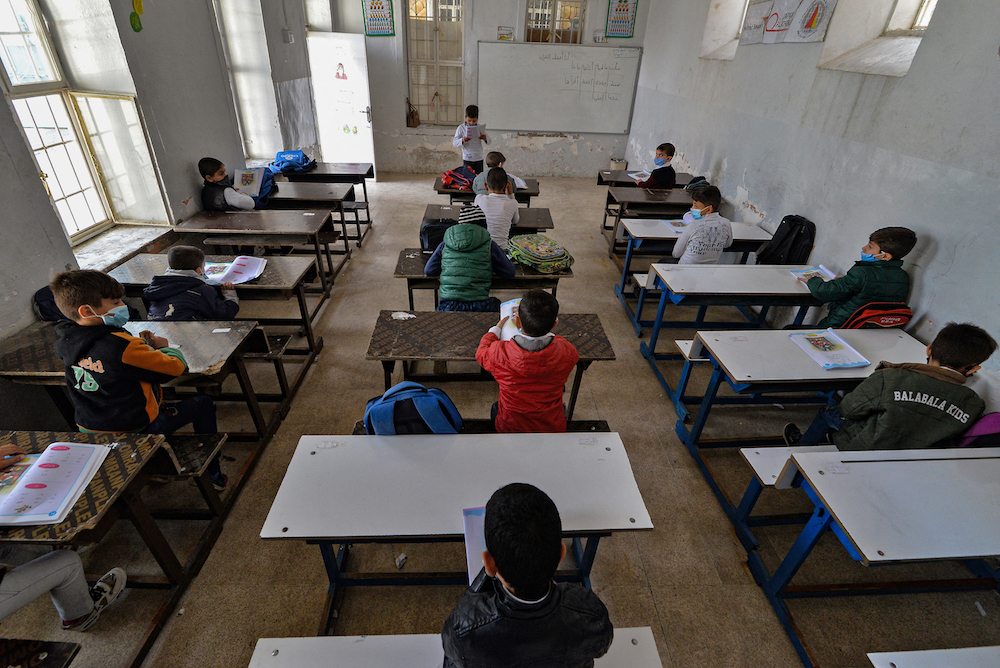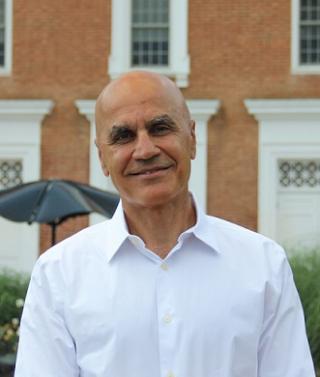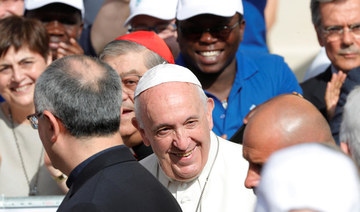LONDON: There has been significant progress in shifting the conversation and debate surrounding Islam away from fundamentalist and extremist themes to a more open, progressive narrative in the period since the Sept. 11, 2001, terror attacks, according to a series of recent studies.
The project, which covered themes ranging from theological debate to education and social reform and youth opinion concerning modernity and Islam, was commissioned by the Tony Blair Institute for Global Change to mark 20 years since the 9/11 atrocities in New York City and Washington, D.C.

In the aftermath of the attacks carried out by Al-Qaeda, an intellectual spotlight was thrown on Islam and the world’s 2 billion Muslims, which one expert believes led to the beginning of an ongoing period of self-examination within the Islamic world, which has helped governments and scholars reclaim the discussion of Islam from extremists.
Dr. Usama Hasan, a senior analyst for the TBI Extremism Policy Unit and a practicing imam, has highlighted more than 120 examples in his report where Islamic scholars have issued fatwas and declarations to combat the threat of extremism since 2001, including the Makkah Charter in 2019 which called for global dialogue based on human equality and the rejection of religious supremacy.
His report, “The State of Debate Within Islam: Theological Developments in the Muslim World Since 9/11,” also cites examples of governments — such as Saudi Arabia’s with its Vision 2030 plan — playing a role in building societies based on reforms anathema to the extremists’ ideology.
Hasan told Arab News that despite the welcome progress, there was still work to be done and the non-Islamic world had a considerable role to play in helping Muslims combat the threat of terrorism, through better outreach to the Islamic world, and also by recognizing the “intense ongoing debates in the Muslim world,” and supporting voices and forces “that are more open, inclusive, and universalist.”
If these discussions are encouraged at a global level, Hasan says, the dialogue will better help the non-Islamic world to understand the interpretations of core Islamic concepts and the so-called theological justifications behind Islamic extremism, as well as assist the Muslim world to combat its ideology.

After the 9/11 attacks, an intellectual spotlight was thrown on Islam and the world’s 2 billion Muslims, which one expert believes led to the beginning of an ongoing period of self-examination within the Islamic world. (AFP/File Photo)
“Because Islamism is based on knitting together very particular interpretations of these four Qur’anic terms — the Ummah, the Caliphate, the Shariah and Jihad — mainstream Islam must confront these interpretations head on, especially by emphasizing inclusive and broader understandings of these terms that are more in harmony with the progressive spirit of the modern world,” Hasan said in his report.
Education reform across the Arab world and monitoring of the content to which children are exposed will also play a key role in combating Islamic radicalism, according to another expert.
In his “Peace and Tolerance Education in the Arab World Two Decades After 9/11” report, Dr. David Weinberg, the Anti-Defamation League’s Washington director for international affairs, has documented the work being done in the Islamic world to address content that contributed to hate and violence.
“Textbooks throughout the region are now teaching that tolerance is a fundamental Islamic value, an ethos that provides an opening for other reforms in practice,” he wrote in his report.
“The report assembles positive examples of passages from Arabic textbooks today that model teaching peace and tolerance in practice, such as lessons that address the common origins of our faith traditions, the inclusion and rights of religious minorities, peaceful interpretations of Islamic thinking, and the importance of respect for others and interfaith dialogue.”

Graphics from current Iranian state textbooks: One with the Khomeini quotation: “Israel Must be Wiped Out,” (L) with another (R) showing Qassem Soleimani with the label “model martyr of the Islamic world” appended in the associated caption. (Supplied)
Similar to Hasan, Weinberg’s report highlights areas of significant progress in the Islamic world, this time in the field of education reform, but he too outlines where more can be done — especially with the help of the international community.
He said: “One of the things I have found from studying textbooks in the region over time is that countries’ educational trajectories can change, and that nothing can be taken for granted. For example, in recent years, Turkey’s textbooks have gotten somewhat worse while Qatar’s have gotten somewhat better.
“I found that textbooks across much of the region express support for tolerance as a general principle but then sometimes contain content about specific topics that contradict these tolerant guidelines.
“The international community can provide technical assistance and diplomatic encouragement to sustain positive reforms of this sort.”
INNUMBERS
• 33,000 - Civilians and security personnel killed in 2017-2018 due to violent Islamist extremism.
• 70,000 - Islamist extremists killed in clashes with security forces or terrorist attacks in 2017-2018.
But for that sustained change to continue, there has to be a political will, from both leaders and the people of the region themselves, Weinberg says.
Referring to Saudi Arabia and the UAE, he says positive revisions made in the textbooks of one country should ideally be reflected in the academic curricula of the other if they want to consolidate the movement toward peace and tolerance education.
Meanwhile, Mansoor Moaddel, a professor of sociology at the University of Maryland-College Park, has used his report, “Changing Values in the Middle East: Secular Swings and Liberal Leanings,” to highlight the importance of increased participation of women and youth in the shift toward a more progressive region.
The young women playing their part in the changes across the Middle East “deserve greater coverage” than the hatred and violence perpetrated by fundamentalists. Because “they are the hope for the future, we should make every effort to support these champions and confront radical Islamists,” Moaddel wrote in his report.
In his recommendations, Moaddel said it was important for Middle East governments to continue to promote women’s social mobility and active participation in the political process, with all their policy approaches investing in them and their futures.

Opening up to the innovative thinking of the large youth population in the Middle East is critical to realizing the region’s full economic potential, according to a second expert. (AFP/File Photo)
Likewise, his report suggests that opening up to the innovative thinking of the large youth population in the Middle East is critical to realizing the region’s full economic potential. One recommendation says “the desires and ambitions of young people today should be continually considered in designing policies of the future.”
One thing that all the experts agree on is that the reconquest of Afghanistan by the Taliban has been a setback to progress for the modernization of global Islam.
Weinberg said: “The fall of Kabul is just absolutely devastating symbolically, and it is a reminder that the struggle against violence and extremism requires sustained investment from all responsible stakeholders to succeed.
“Extremists all over the world and of all kinds take encouragement from what happened in Afghanistan last month, and it’s up to all of us to aid the victims and to do what we can to ensure that they cannot succeed in translating the tragedy of what happened in Afghanistan into gains in other places around the world.”
Hasan recently told Arab News that more effort from the non-Islamic world could prevent the Taliban from repeating the excesses of their 1996-2001 rule.
He said: “If the military solution hasn’t worked, the diplomatic, dialogue-based efforts could bear fruit.
“What I would have liked, in an ideal world, with all of this excellent theological engagement within the Islamic world and the non-Islamic world it would be great to see the Taliban mullahs involved.
“It’s in everybody’s interest to engage more with the Taliban, showing them the sense in having a more progressive, pluralistic approach to Islam.”

Mansoor Moaddel, a professor of sociology at the University of Maryland-College Park, talks about the role of women and the youth to promoting modernization in Islam. (Supplied)
But regardless of this, Hasan and Weinberg will both be keeping track of the Islamic world’s direction, progress, and reform in the coming years.
As long as healthy and constructive debate continues between the Islamic and non-Islamic worlds, Hasan is confident Muslims can play a larger role in helping to find practical and lasting solutions to the challenges facing humanity, including climate change, and improving human rights.
Such an approach is required to challenge and debunk the extremist content produced by destabilizing forces before it reaches Middle Eastern youth, added Weinberg, citing the Iranian regime and its regional proxies as examples.
“The most I can say at this point is that I am cautiously optimistic about whether more progress will be made in the coming decades to curtail the exposure that children in the Middle East and around the world will have to extremist ideologies," Weinberg said.
“On the one hand, terrorist groups and their sponsors have some powerful safe havens that are tough to roll back, and from which they propagate hateful curricula such as those currently generated by Iran and Hezbollah.
“Plus, our children are now more vulnerable to hateful disinformation and extremist recruitment through the internet and social media in particular. But the internet also provides a vehicle for positive messages of peace and tolerance, and there is more that all of us can do to push back against hateful disinformation as well.”




























